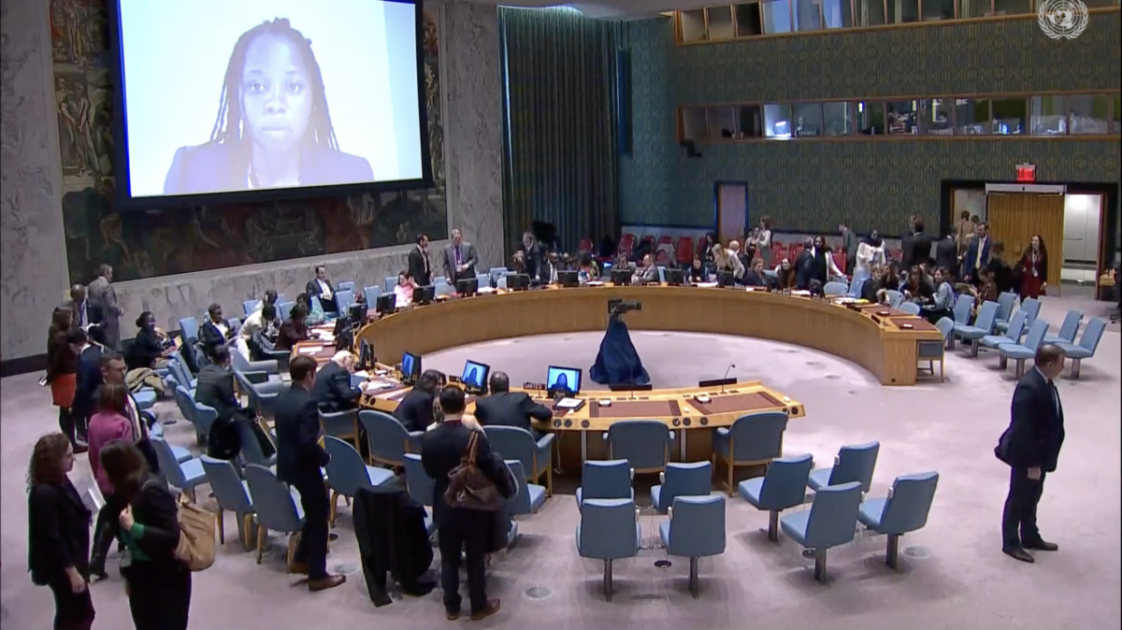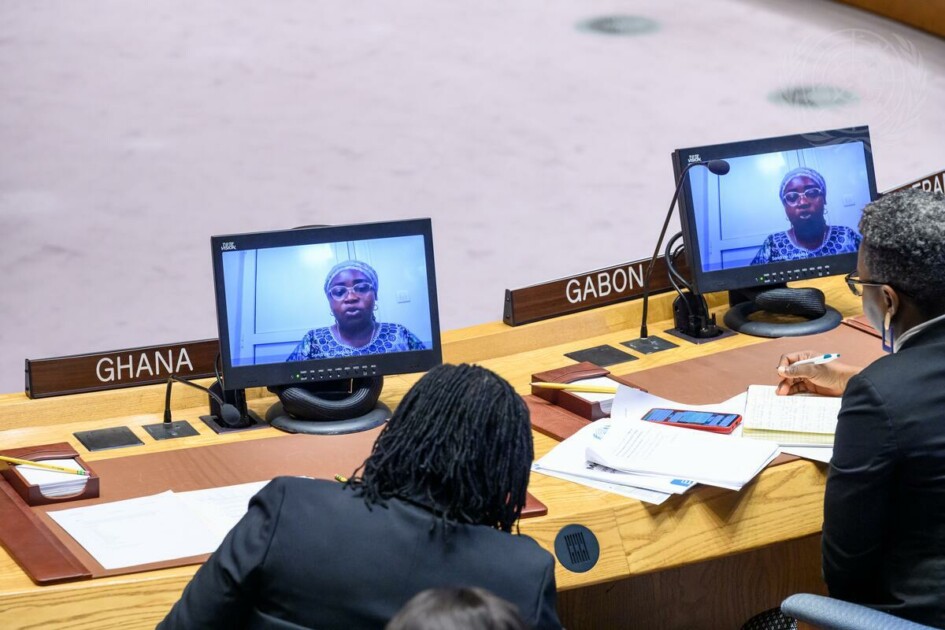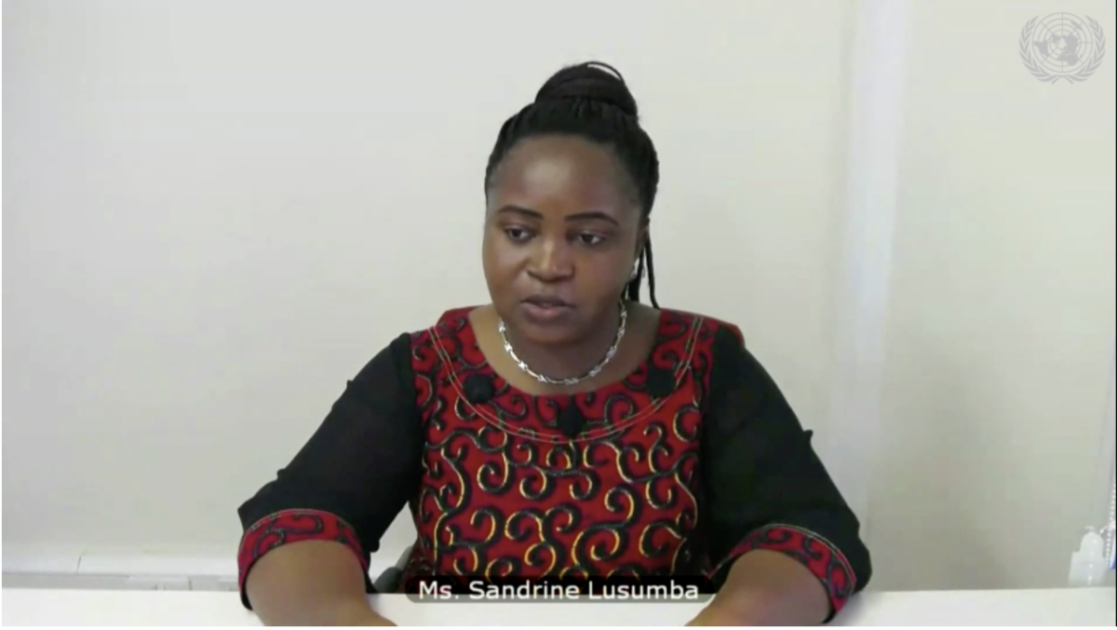Democratic Republic of the Congo
Women in the Democratic Republic of Congo continue to face widespread sexual violence, disease, and displacement in conflict situations arising from clashes between dozens of armed groups. Often, sexual violence and rape are used as terror tactics and weapons of war, and despite the ratification of the Convention on the Elimination of All Forms of Discrimination against Women (CEDAW) and the Women’s Platform for the Peace, Security and Cooperation Framework, women are still largely underrepresented in peacebuilding efforts. Additionally, women activists face rape as a form of torture by government actors who disagree with their political activity. The United Nations Organization Stabilization Mission in the DRC (MONUSCO) aims to provide protection for civilians, including reducing the threat of armed groups perpetrating sexual and gender-based violence, monitoring and reporting on sexual violence and ensuring women’s participation in stabilization and national political dialogue.
Democratic Republic of the Congo
Women in the Democratic Republic of the Congo continue to face widespread sexual violence, disease, and displacement in conflict situations arising from clashes between dozens of armed groups. Often, sexual violence and rape are used as terror tactics and weapons of war, and despite the ratification of the Convention on the Elimination of All Forms of Discrimination against Women (CEDAW), and the Women’s Platform for the Peace, Security and Cooperation Framework, women are still largely underrepresented in peacebuilding efforts.
Additionally, women activists face rape as a form of torture by government actors who disagree with their political activity. The United Nations Organization Stabilization Mission in the DRC (MONUSCO) aims to provide protection for civilians, including reducing the threat of armed groups perpetrating sexual and gender-based violence, monitoring and reporting on sexual violence and ensuring women’s participation in stabilization and national political dialogue.
Current and Past Recommendations to the UN Security Council (Monthly Action Points)
In light of the forthcoming discussion on the political situation in the Democratic Republic of the Congo (DRC), the Council must continue to discuss and push for women’s participation in the implementation of the Peace, Security and Cooperation Framework, elections, and political processes. Tensions around elections are likely to escalate further, especially in the absence of inclusive and widely-supported solutions to the challenges related to the electoral calendar, electoral register, and voting machines. The inclusivity of the elections is already severely undermined by the exclusion of two of the main opposition candidates and could be further hampered by obstacles to women’s participation, such as intimidation and lack of security. The Council should call on the Government and opposition to come together and find a solution to the continued disagreements, notably around voting machines and electoral record. The Council should also discuss the risks around the use of voting machines that could impede women’s participation, including potential voter manipulation, the length of time associated with voting, poorly-trained electoral staff, and lack of both clear instructions and of information on voting machine usage. Deployment of voting material and access to polling stations for populations in areas affected by armed violence will also pose significant challenges. The role of security forces in the process should also be considered very carefully, as their deployment in certain areas could exacerbate existing tensions. Furthermore, the Council should demand the urgent implementation of the Commission of Investigation’s recommendations regarding the violent repression of peaceful demonstrations by the security forces. According to the Joint Human Rights Office of the UN, a dramatic increase in human rights violations were committed in August (515 reported violations in July and 620 in August). The number of violations perpetrated by Government agents and armed groups has nearly doubled, reaching 66% of all violations, including at least 24 extrajudicial executions. In the last three months, conflict has intensified in North Kivu, Ituri and Tanganyika around Kalemie, in part due to the renewed population movement, which risks further destabilizing the situation. The elections are likely to be a moment crystallizing tensions, especially for armed groups and actors that seek to position themselves in the new political landscape. The Council must address closing of civic space, increasing violence in urban and rural areas, risks of further violence in the run-up to elections, and possible voting exclusions of displaced people and populations living in conflict-stricken areas. The Council should also call on donors to ensure appropriate resources to support vulnerable populations affected by conflict and violence, including access to justice as well as essential and gender-responsive services. The Security Council must continue to demand that the Government and armed groups uphold international humanitarian law and ensure accountability for the perpetrators and justice for the survivors, including by ensuring the independence of the judiciary and furnishing judicial authorities with the necessary means to carry out their tasks.
Relevant Resources









